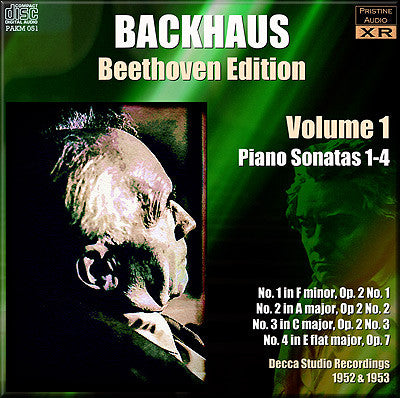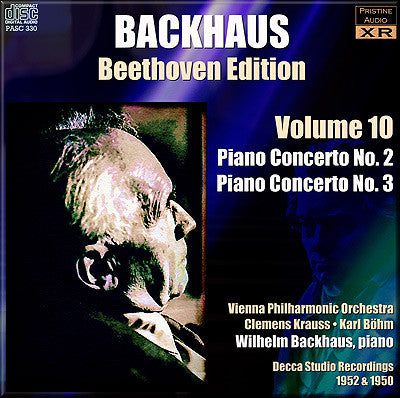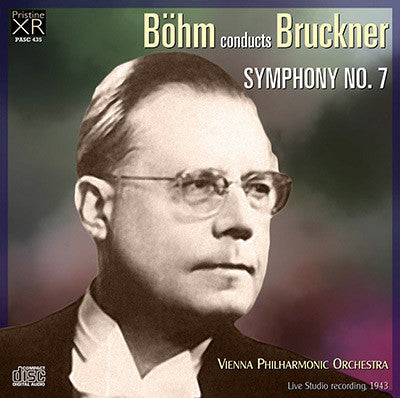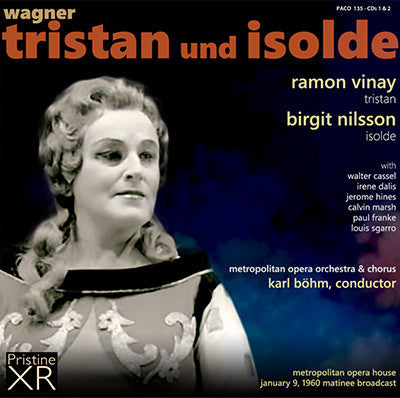Karl Böhm
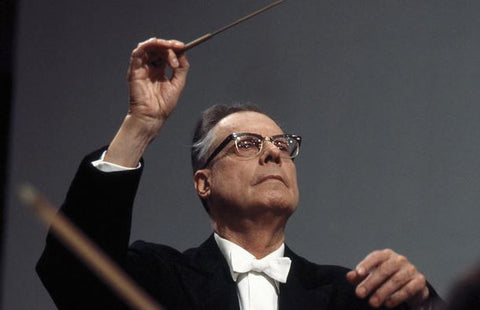
Karl August Leopold Böhm (28 August 1894 in Graz – 14 August 1981 in Salzburg) was an Austrian conductor. Particularly gifted in his interpretations of Wagner and Mozart, has been described by one critic as one of the greatest conductors of the 20th century.
In 1917 Karl Böhm became a rehearsal assistant in his home town, in 1919 the assistant director of music, and in 1920 the senior director of music. On the recommendation of Karl Muck, Bruno Walter engaged him at Munich's Bavarian State Opera in 1921. An early assignment here was Mozart's Entführung, with a cast including Maria Ivogun, Paul Bender and Richard Tauber. In 1927 he was appointed as chief musical director in Darmstadt. From 1931 to 1934 he fulfilled the same function at the Hamburg opera company and was appointed professor.
In 1933 he conducted in Vienna for the first time, in Tristan and Isolde by Wagner. He succeeded Fritz Busch, who had gone into exile, as head of Dresden's Semper Opera in 1934, a position he held until 1942. This was an important period for him, in which he conducted the first performances of works by Richard Strauss: Die schweigsame Frau (1935) and Daphne (1938), which is dedicated to him. He also conducted the first performances of Romeo und Julia (1940) and Die Zauberinsel (1942) by Heinrich Sutermeister, and Strauss's Horn Concerto No. 2 (1943).
In 1938 he took part in the Salzburg Festival for the first time, conducting Don Giovanni, and thereafter he became a permanent guest conductor. He secured a top post at the Vienna State Opera in 1943, eventually becoming music director. On the occasion of the 80th birthday of Richard Strauss, on 11 June 1944, he conducted the Vienna State Opera performance of Ariadne auf Naxos.
After he had completed a two-year post-war denazification ban, Böhm led Don Giovanni at Milan's Teatro alla Scala (1948) and gave a guest performance in Paris with the Vienna State Opera company (1949). From 1950 to 1953 he directed the German season at the Teatro Colón in Buenos Aires, and he conducted the first Spanish performance of the opera Wozzeck by Alban Berg, translated into Spanish for the occasion. In 1953 he was responsible for the first performance of Gottfried von Einem's work Der Prozess. From 1954 to 1956 he directed the Vienna State Opera at its reconstructed home. He additionally resumed ties post-war in Dresden, at the Staatskapelle.
In 1957 he made his debut at the Metropolitan Opera in New York City, conducting Don Giovanni, and quickly became one of the favorite conductors of the Rudolf Bing era, leading, all told, 262 performances, including the house premieres of Wozzeck, Ariadne auf Naxos and Die Frau ohne Schatten, which was the first major success in the new house at Lincoln Center. Böhm led many other major new productions in New York, such as Fidelio for the Beethoven bicentennial, Tristan und Isolde (including the house debut performance of Birgit Nilsson in 1959), Lohengrin, Otello, Der Rosenkavalier, Salome, and Elektra. His repertoire there also included Le nozze di Figaro, Parsifal, Der fliegende Holländer, Die Walküre, and Die Meistersinger von Nürnberg.
Böhm made his debut at the Bayreuth Festival in 1962 with Tristan and Isolde, which he conducted until 1970. In 1964 he led Wagner's Die Meistersinger von Nürnberg there, and from 1965 to 1967 the composer's Der Ring des Nibelungen cycle, which was the last production by Wieland Wagner. These appearances resulted in critically acclaimed recordings of the Ring and Tristan. In 1965 Böhm conducted Fidelio in Tokyo. In 1971 he gave performances in Moscow and led Wagner's Flying Dutchman in Bayreuth.
Late in life, he began a guest-conducting relationship with the London Symphony Orchestra (LSO) in a 1973 appearance at the Salzburg Festival.[2] Several recordings were made with the orchestra for Deutsche Grammophon. Böhm was given the title of LSO President, which he held until his death. During the 1970s, the conductor led performances at the Royal Opera House in Covent Garden.

Karl Böhm
Karl August Leopold Böhm (28 August 1894 in Graz – 14 August 1981 in Salzburg) was an Austrian conductor. Particularly gifted in his interpretations of Wagner and Mozart, has been described by one critic as one of the greatest conductors of the 20th century.
In 1917 Karl Böhm became a rehearsal assistant in his home town, in 1919 the assistant director of music, and in 1920 the senior director of music. On the recommendation of Karl ...
BEETHOVEN Piano Sonatas 1-32
BEETHOVEN Piano Concerto Nos. 1-5
BEETHOVEN Variations on a Waltz by Diabelli, Op. 120
Recorded 1950-1958
Wilhelm Backhaus, piano
Vienna Philharmonic Orchestra
Clemens Krauss, conductor
Karl Böhm, conductor
Hans Schmidt-Isserstedt, conductor
Save 5% when you order the complete collection
Total duration: 61:45
Wilhelm Backhaus, piano
Vienna Philharmonic Orchestra
Clemens Krauss, conductor
Karl Böhm, conductor
Recorded Großen Musikvereinssaal, Vienna, 4-5 June 1943
Total duration: 67:19
Vienna Philharmonic Orchestra
WAGNER Tristan und Isolde
Live broadcast recording, 1960
Producer and XR Remastering: Andrew Rose
Cover artwork based on a photograph of Birgit Nilsson as Isolde, Met Opera 1959/60
Total duration: 3hr 22:30
Isolde - Birgit Nilsson
Orchestra & Chorus of the Metropolitan Opera
Karl Böhm, conductor

